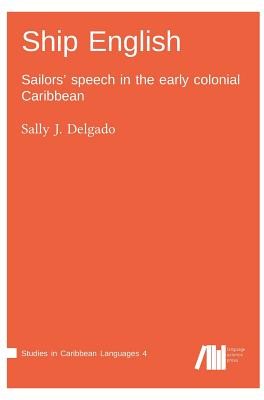
- We will send in 10–14 business days.
- Author: Sally Delgado
- Publisher: Language Science Press
- ISBN-10: 3961101523
- ISBN-13: 9783961101528
- Format: 17 x 24.4 x 2.1 cm, kieti viršeliai
- Language: English
- SAVE -10% with code: EXTRA
Reviews
Description
This book presents evidence in support of the hypothesis that Ship English of the early Atlantic colonial period was a distinct variety with characteristic features. It is motivated by the recognition that late-seventeenth and early-eighteenth century sailors' speech was potentially an influential variety in nascent creoles and English varieties of the Caribbean, yet few academic studies have attempted to define the characteristics of this speech. Therefore, the two principal aims of this study were, firstly, to outline the socio-demographics of the maritime communities and examine how variant linguistic features may have developed and spread among these communities, and, secondly, to generate baseline data on the characteristic features of Ship English. The methodology's data collection strategy targeted written representations of sailors' speech prepared or published between the dates 1620 and 1750, and prioritized documents that were composed by working mariners. These written representations were then analyzed following a mixed methods triangulation design that converged the qualitative and quantitative data to determine plausible interpretations of the most likely spoken forms. Findings substantiate claims that there was a distinct dialect of English that was spoken by sailors during the period of early English colonial expansion. They also suggest that Ship English was a sociolect formed through the mixing, leveling and simplification processes of koinization. Indicators suggest that this occupation-specific variety stabilized and spread in maritime communities through predominantly oral speech practices and strong affiliations among groups of sailors. It was also transferred to port communities and sailors' home regions through regular contact between sailors speaking this sociolect and the land-based service-providers and communities that maintained and supplied the fleets. Linguistic data show that morphological characteristics of Ship English are evident a
EXTRA 10 % discount with code: EXTRA
The promotion ends in 22d.19:54:38
The discount code is valid when purchasing from 10 €. Discounts do not stack.
- Author: Sally Delgado
- Publisher: Language Science Press
- ISBN-10: 3961101523
- ISBN-13: 9783961101528
- Format: 17 x 24.4 x 2.1 cm, kieti viršeliai
- Language: English English
This book presents evidence in support of the hypothesis that Ship English of the early Atlantic colonial period was a distinct variety with characteristic features. It is motivated by the recognition that late-seventeenth and early-eighteenth century sailors' speech was potentially an influential variety in nascent creoles and English varieties of the Caribbean, yet few academic studies have attempted to define the characteristics of this speech. Therefore, the two principal aims of this study were, firstly, to outline the socio-demographics of the maritime communities and examine how variant linguistic features may have developed and spread among these communities, and, secondly, to generate baseline data on the characteristic features of Ship English. The methodology's data collection strategy targeted written representations of sailors' speech prepared or published between the dates 1620 and 1750, and prioritized documents that were composed by working mariners. These written representations were then analyzed following a mixed methods triangulation design that converged the qualitative and quantitative data to determine plausible interpretations of the most likely spoken forms. Findings substantiate claims that there was a distinct dialect of English that was spoken by sailors during the period of early English colonial expansion. They also suggest that Ship English was a sociolect formed through the mixing, leveling and simplification processes of koinization. Indicators suggest that this occupation-specific variety stabilized and spread in maritime communities through predominantly oral speech practices and strong affiliations among groups of sailors. It was also transferred to port communities and sailors' home regions through regular contact between sailors speaking this sociolect and the land-based service-providers and communities that maintained and supplied the fleets. Linguistic data show that morphological characteristics of Ship English are evident a


Reviews